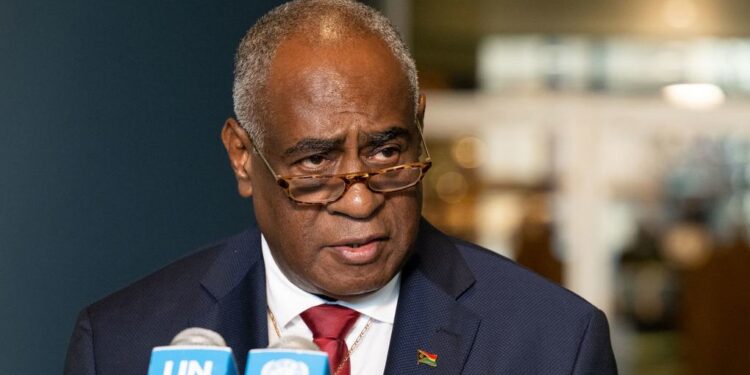On March 29, 2023, the General Assembly of the United Nations voted yes by consensus on Vanuatu’s call to the International Court of Justice (ICJ) for an advisory opinion on the legal obligations of governments in addressing the climate crisis.
The resolution was backed by more than 130 countries. Although the US and China, two of the world’s largest polluters, did not offer their explicit support, they also did not raise any objections.
This is the first time the highest international court has been asked to confront a climate emergency. Now that the resolution has been adopted, the court will commence legal proceedings.
The proposal, initiated by the Republic of Vanuatu and 17 other nations, seeks the ICJ’s clarification on what the obligations of states are to protect the climate system and environment for present and future generations. It also raised the question of what the legal consequences are for states and the significant harm they do to the climate and environment.
Even though the Advisory Opinion is not legally binding, it holds considerable importance and influence and moral authority. It has the potential to shape climate talks and upcoming climate-related litigations worldwide. Additionally, it may reinforce the bargaining power of nations, such as Vanuatu, that are susceptible to the adverse effects of climate change in international negotiations.
You Might Also Like: New marathon international trial in The Hague?
Vanuatu has been a leader in the climate justice movement for decades, proposing the addition of ecocide as a crime under the Rome Statute of the International Criminal Court, the amending of which would be a challenging and time-consuming feat. The creation of the ICJ proposal was meant to raise awareness on the intersectionality of human rights and climate change and seek accountability for ecocide.
In addition, the country has seen more extreme rainfall events, severe flooding, and storm surges, all of which directly affect Vanuatu people. Vanuatu has faced serious environmental damage because of such events and sees a frightening future if no change is achieved. To obtain the goal of the Vanuatu people, the Advisory Opinion from the ICJ is an important step.
An Advisory Opinion from the ICJ is legal advice provided to a UN organ in line with Article 96 of the UN Charter. This article states that the ICJ is the principal legal organ of the UN, the central judicial instrument of the General Assembly and the Security Council. These organs may request Advisory Opinions on any legal question. Specialised agencies like UNESCO and UNICEF may requests Advisory Opinions on their areas of work, like culture and children respectively.







